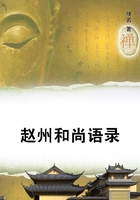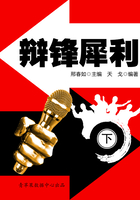Encouraged by these hopeful signs, the king despatched an embassy to Rome to arrange for the reconciliation of Sweden to the Church. The royal commissioners were instructed to request, that owing to the peculiar circumstances of the country, permission should be given for Communion under both kinds, for the celebration of the Mass in the Swedish language, and for the abrogation of the law of celibacy at least in regard to the clergy who were already married. Gregory XIII., deeply moved by the king's offer of a reunion, sent the Jesuit, Anthony Possevin, as his legate to discuss the terms. John set an example himself by abjuring publicly his errors and by announcing his submission to the Church (1578).
A commission was appointed at Rome to discuss the concessions which the king demanded, and unfortunately the decision was regarded in Sweden as unfavourable. A warm controversy, fomented and encouraged by the enemies of reunion, broke out between the opponents and supporters of the new liturgy. Duke Karl, who had now become the hope of the Lutheran party, did everything he could to stir up strife, while at the same time Rome refused to accept the terms proposed by the king.
Indignant at what he considered the unreasonable attitude of the Roman authorities, John began to lose his enthusiasm for his religious policy, and after the death of his wife who was unwavering in her devotion to her religion, there was no longer much hope that Sweden was to be won from heresy (1584). The king married another who was strongly Lutheran in her sympathies, and who used her influence over him to secure the expulsion of the Jesuits. Though John III. took no further steps to bring about reunion he could not be induced to withdraw the liturgy, the use of which he insisted upon till his death in 1592.
His son Sigismund III. should have succeeded. He was an ardent Catholic as his mother had been, but as he had been elected King of Poland (1586) he was absent from Sweden when the throne became vacant by the death of his father. Duke Karl and his friends did not fail to take advantage of his absence. When the Synod met the senators demanded that Sigismund should accept the Augsburg Confession as a condition for his election to the throne. To this Sigismund sent the only reply that a good Catholic and an honest man could send, namely, a blunt refusal. His uncle, Duke Karl, the acting regent of Sweden, took steps to seduce the Swedish people from their allegiance to their lawful king, and to prepare the way for his own accession. He proclaimed himself the protector of Lutheranism and endeavoured to win over the bishops to his side. In a national Assembly held at Upsala (The "Upsala-mote" 1593) after a very violent address from the regent against the Catholic Church, the bishops confessed that they had blundered in accepting the liturgy of John III., and the Assembly declared itself strongly in favour of the Augsburg Confession.
When, therefore, Sigismund returned to claim the throne he found that Lutheranism was entrenched safely once more, and that even the most moderate of the bishops appointed by his father must be reckoned with as opponents. The clergy united with Duke Karl in stirring up the people against him. In these conditions he was forced to abandon his projects of reform, and to entrust his uncle with the administration of Sweden when he himself was obliged to return to Poland. While Sigismund was engaged in Poland, the regent conducted a most skilful campaign, nominally on behalf of Protestantism, but in reality to secure the deposition of Sigismund and his own election to the throne.
In the Diet of Suderkoping (1595) Sigismund was condemned for having bestowed appointments on Catholics and for having tolerated the Catholic religion in his kingdom of Sweden, and it was ordered that all who professed the doctrines of Rome should abandon their errors within six months under pain of expulsion from the country. The Archbishop of Upsala made a visitation of the churches, during which he ordered that all those who absented themselves from the Lutheran service should be flogged in his presence, that the pictures, statues, and reliquaries should be destroyed, and that the liturgy introduced by John III. should be abolished. The greatest violence was used towards the supporters of King Sigismund, most of whom were either Catholic or at least favourably inclined towards Catholicism.
Enraged by a decree that no edict of the king should have any binding force unless confirmed by the Swedish Diet, and driven to desperation by the tyranny and oppression of the regent, some of Sigismund's followers raised the standard on behalf of their king, and Sigismund returned to Sweden with an army of five thousand men. He found himself opposed by the forces of the regent against whom he was at first successful, but in his treatment of his uncle and his rebel followers he showed himself far too forgiving. In return for his kindness, having strengthened themselves by a large army they forced him to submit to the decision of a national Assembly to be held at Jonkoping (1599). At this meeting Duke Karl accused the king of endeavouring to plunge Sweden once more into the errors from which it had been rescued by the reformers. In May of the same year a resolution was passed declaring that the king had forfeited the allegiance of his subjects unless he yielded to their demands, and more especially unless he handed over his son and heir to be reared by the regent as a Protestant. Many of his supporters, including nine members of the Council of State, were put to death. Finally in 1604 Sigismund was formally deposed, and the crown was bestowed on his uncle, Duke Karl, who became king under the title of Charles IX. Protestantism had triumphed at last in Sweden, but even its strongest supporters would hardly like to maintain that the issue was decided on religious grounds, or that the means adopted by Charles IX. to secure the victory were worthy of the apostle of a new religion.
----------
[1] A Franciscan. He was the author of the /Confutatio Lutheranismi Danici/, edited and















